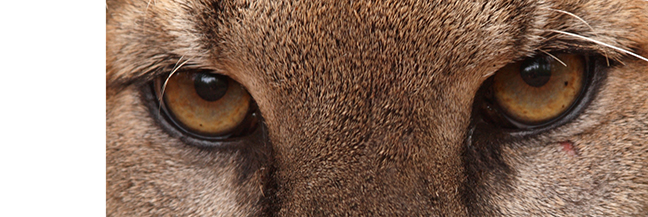Current Students
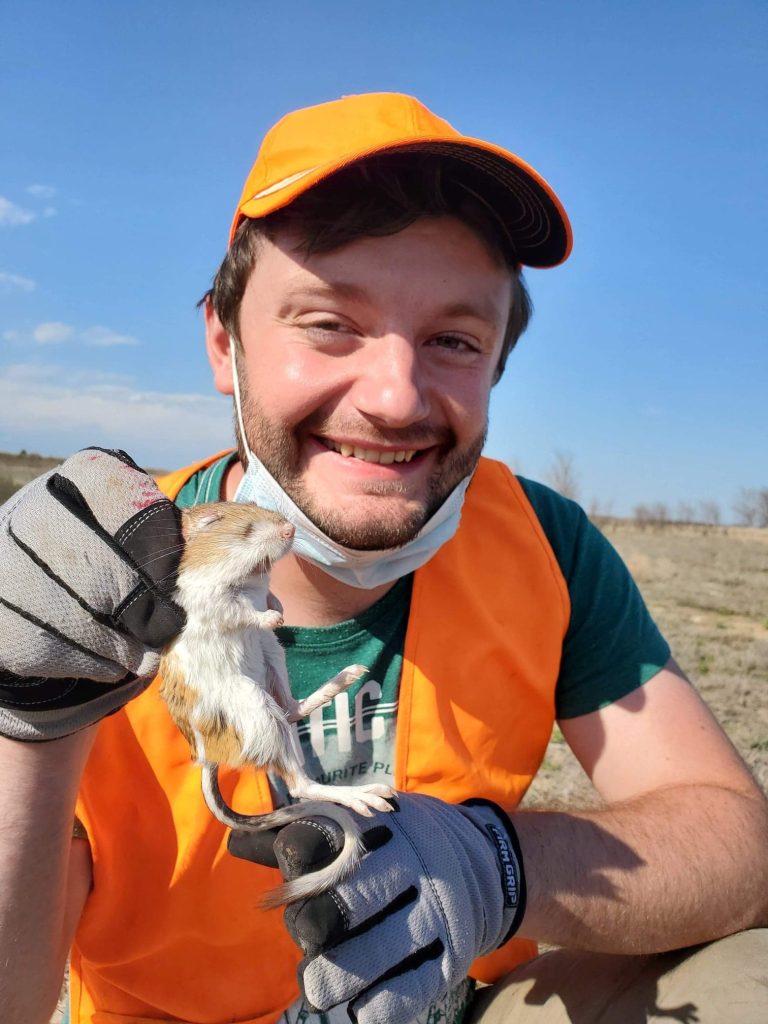
Nathan Proudman is a postdoctoral researcher studying furbearers in Illinois. Originally from the valleys of South Wales, Nathan received his bachelor’s degree in Biology from Bath Spa University in the UK, studying niche partitioning among neotropical primates within the Pacaya-Samiria National Reserve in Peru. He then went on to study Biology with a specialization in Animal Ecology at Lund University, Sweden. For his master’s thesis research he studied anti-predatory behaviours of red deer in Białowieża Forest, Poland, in response to fear effects elicited by wolves and human hunters. Nathan studied his PhD in Natural Resource Ecology and Management at Oklahoma State University, where he studied bobcats, their sympatric meso-carnivores, and their prey, using a combination of non-invasive and invasive methods. During his time in Oklahoma, he served as the state’s student representative within the Wild Felid Association and the student-at-large for the Central Plains Society of Mammalogists. He is broadly interested in wildlife ecology, but most of his experience lies with mammals.
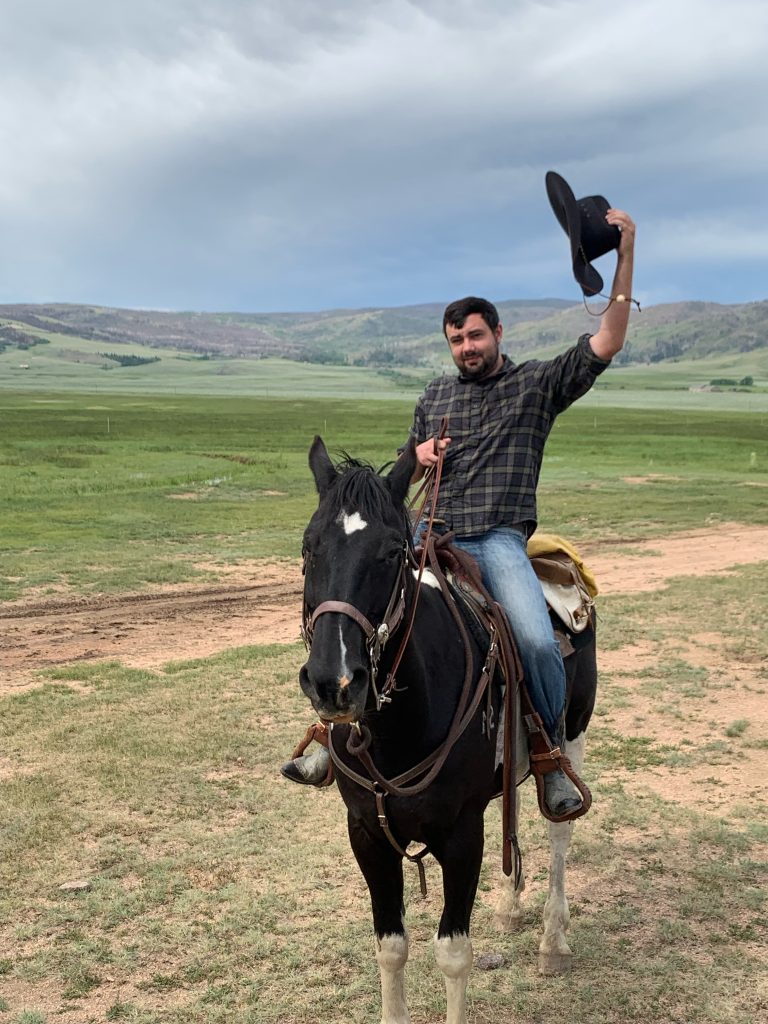
Justin Remmers is a postdoctoral researcher studying population ecology of furbearing species in Michigan. He received his bachelor’s degree in Biology from Missouri Southern State University before moving to New Hampshire to pursue a master’s degree. His master’s thesis research examined population structuring of Blanding’s turtles in the Northeastern United States. To further his education, Justin pursued his PhD in Agricultural Sciences in the Forestry Department at Southern Illinois University – Carbondale, where he studied occupancy and co-occurrence of forest wildlife in southern Illinois and the impacts of legal harvest on furbearing populations. He is broadly interested in wildlife biology, conservation, community ecology, population dynamics, and how novel quantitative approaches can help researchers better understand these areas.
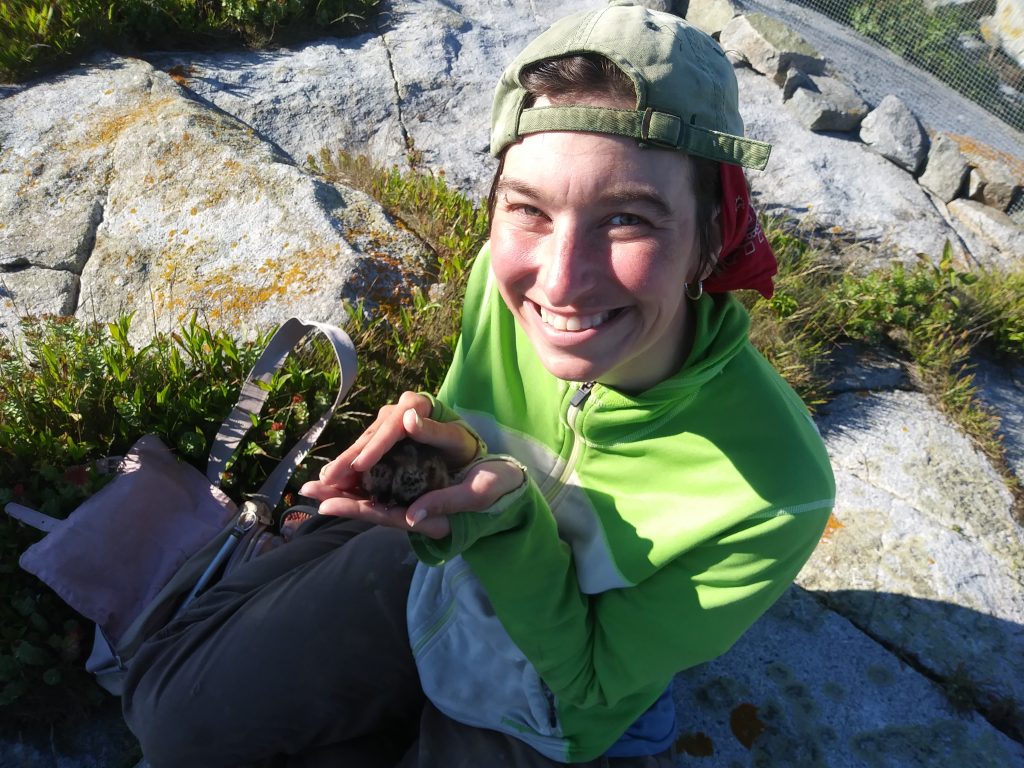
Lauren Scopel is a postdoctoral researcher, currently studying the population dynamics of wildlife in Illinois. Lauren recently completed her PhD at the University of New Brunswick, Canada, examining the potential use of seabird data as bioindicators of the Gulf of Maine ecosystem. Her research led to the restoration of the Arctic Tern colony at Machias Seal Island, NB, which was formerly the largest in North America. She has great interest in the analysis of long-term ecological datasets, especially regarding changes to and potential management actions for populations, communities, and ecosystems. Lauren earned her Bachelor’s degrees from Michigan State University (Go Green!), in Zoology and Fisheries and Wildlife. Lauren has studied animal populations (mostly birds) in Michigan, South Carolina, Maryland, West Virginia, Kansas, Maine, North Carolina, Florida, Georgia, Alaska, New Brunswick, Nova Scotia, California, and Illinois. All publications can be found on ResearchGate.
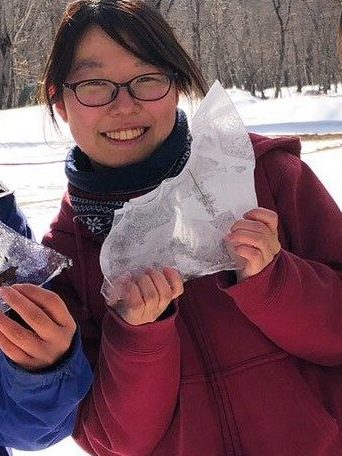
Akino Inagaki is a Post-doctoral Researcher with the the Tokyo University of Technology and Agriculture. She completed her Ph.D. in 2024 on scavenger community dynamics on Honshu Island. Akino completed her completed her M.S. thesis in 2019 focused on the interspecific interactions among facultative scavengers in the East Asian temperate forest, with chapters from her M.S. were published in Ecology and Evolution and Scientific Reports.
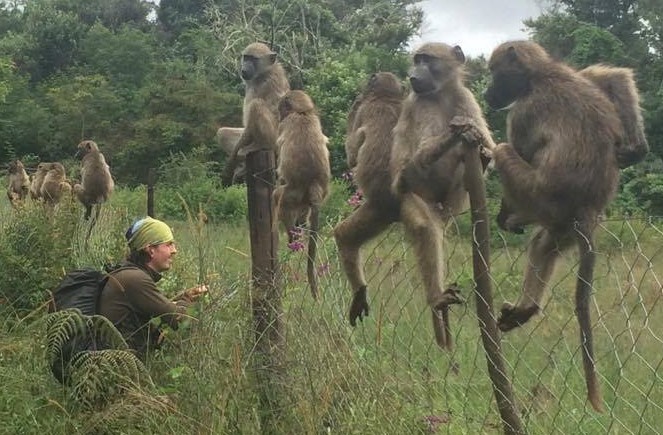
Andy Allan is a postdoctoral fellow (Leverhulme, Durham University, UK) studying puma in the Wasatch Mountains and Eurasian lynx in the Dinaric Mountains. He is interested in individuality in wild felids and whether this may shape their ecosystem roles. Andy completed his PhD at Durham University whilst also managing a field station in South Africa, overseeing research on chacma baboons and samango and vervet monkeys. He explored questions related to dietary and foraging strategies, social organisation, antipredator behaviours, and observer-tolerance (personality). He has previously worked for the Zoological Society of London on various projects, including social foraging and learning in chacma baboons in Namibia (Master’s degree and post-doctoral), and collating data on zoonotic disease occurrence in Central Asia (post-doctoral). Prior to this, he worked as a field technician in the Mojave (desert tortoises) and Reno-Tahoe (flying squirrels) and obtained a bachelor’s degree in ecology and a foundation degree in forestry and woodland management. In his free time, he enjoys sports, weightlifting, writing, and playing guitar.
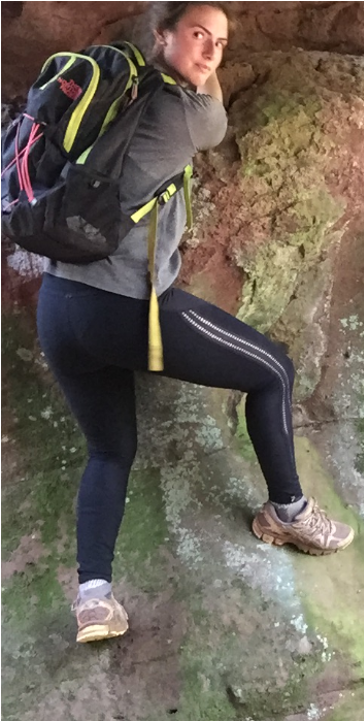
Laura LaBarge is a Postdoctoral Researcher with the Max Planck Institute of Animal Behavior and is interested in how phenotypic variation in puma and lynx may result in within-species ecosystem role diversity. Laura spent several years conducting fieldwork in the Soutpansberg mountains of northern South Africa, and her PhD research focused on the ecology of fear and potential for “human shields” to alter prey species’ physiological responses to predators. After finishing her PhD, Laura worked with the Center for Conservation Innovation at Defenders of Wildlife and, in 2021, began a postdoc at MPI-AB where much of her work focuses on the movement ecology of tropical forest primates. In her spare time Laura also does weightlifting but does not enjoy it.
Former Students

Javan Bauder was a post-doctoral researcher exploring rigorous methods of population estimation for the Illinois DNR. He completed his Ph.D. in 2018 at the University of Massachusetts, Amherst, where he examined the population viability and connectivity of the federally threatened eastern indigo snake in central Florida. Javan is now the Assistant Coop Lead at the University of Arizona.
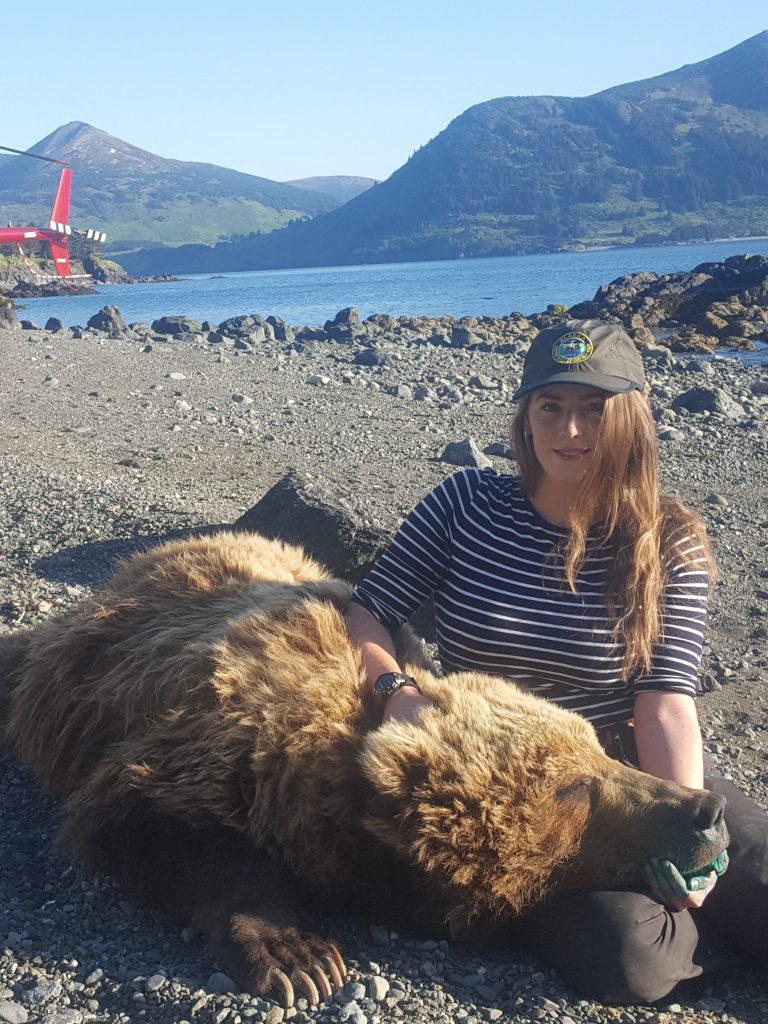
Shannon Finnegan hails from Ireland and was a post-doctoral researcher studying brown bears and deer on the Kodiak Archipeligo, along with a little jagaur work in Brazil. Shannon completed her PhD at the State University of New York, College of Environmental Science and forestry, where her research focused on Kodiak brown bear movement, dietary and energetic ecology in relation to changing resource distributions. She completed her Master’s degree in the UK, where she carried out research on how environmental factors and interspecific interactions affect carnivore coexistence in the Brazilian Pantanal. Before this Shannon obtained a bachelor’s degree in Zoology, where she studied the population ecology of a jaguar population in central Brazil. Additionally she has worked with a tiger conflict mitigation project in India and assisted with research on a large carnivore project in South Africa.
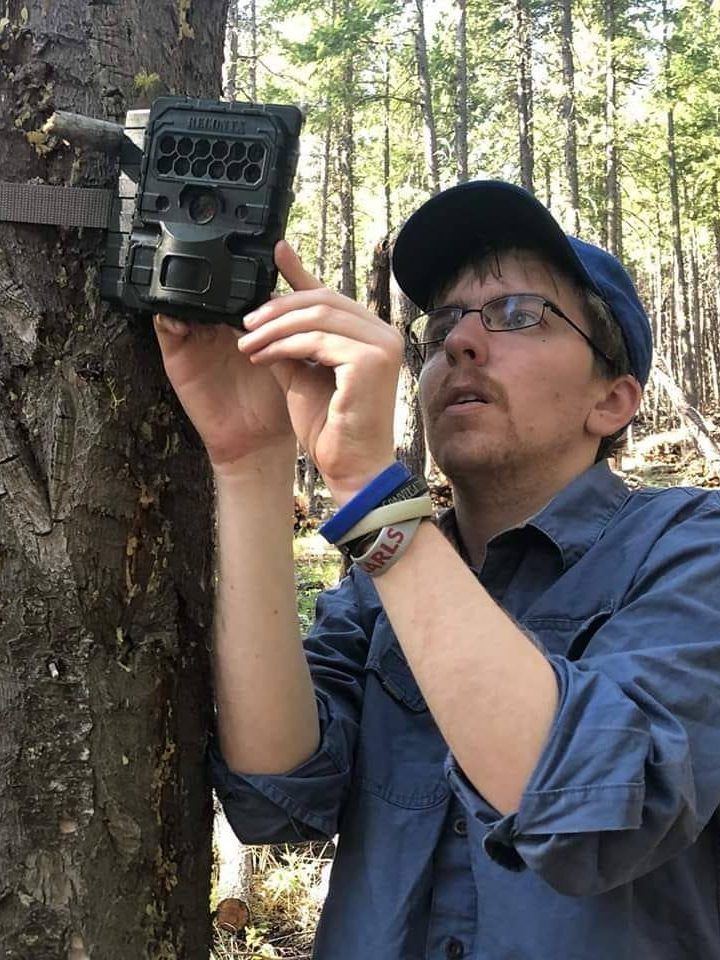
Dr. Robbie Emmet received a PhD in Quantitative Ecology and Resource Management from the University of Washington and a BA in Mathematics/Statistics and Classical Studies from Carleton College. Robbie’s research involves the development and application of hierarchical models for wildlife populations, including estimation of occurrence, relative abundance, and survival. Robbie works on a variety of species across multiple taxa, and his methodological interests include methods development, survey design, and data integration techniques.

Alex Avrin was a Master’s student studying carnivores in Fort Hood. She received a Bachelor’s degree in Wildlife Biology from Colorado State University in 2015, where she completed an honors thesis on the foraging behavior of mule deer. Her first chapter examines the efficacy of baiting camera traps for carnivore studies, her second chapter examines the efficacy of bait for Eastern Spotted Skunks, and her third chapter examines if mesocarnivores can fill the role of apex carnivores. Alex has also worked on studies examining Eastern spotted skunk monitoring and mating behavior. Alex is currently a wildlife biologist with the California Department of Fish and Wildlife.
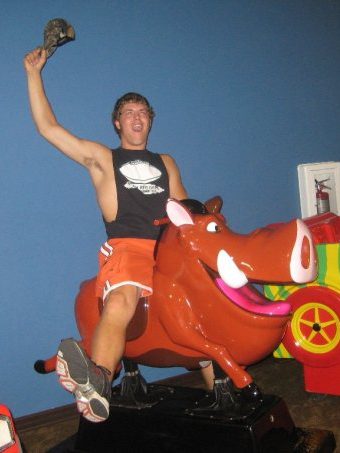
Marcus Mueller completed his Master’s degree in 2017 focused on the interactions of urban canids. His thesis chapters were published in Landscape and Urban Planning and PLoS One. He is now the owner/operator of Skeedaddle Wildlife Control in Milwaukee, Wisconsin.
Morgan Farmer first started working with coyotes during her undergraduate at the University of California – Berkeley, where she completed an independent senior thesis looking at how habitat use of urban coyotes was affected by habitat characteristics and recreation. As a child, she grew up in California and spent a vast majority of time either outside or reading, both of which stimulated a love of nature and especially wildlife. Her M.S. research focused on competition and island biogeography as drivers of spatiotemporal activity and the effects of anthropogenic activity and structures on the carnivore community of the Apostle Islands National Lakeshore. Morgan is currently a PhD student at the University of Wisconsin.
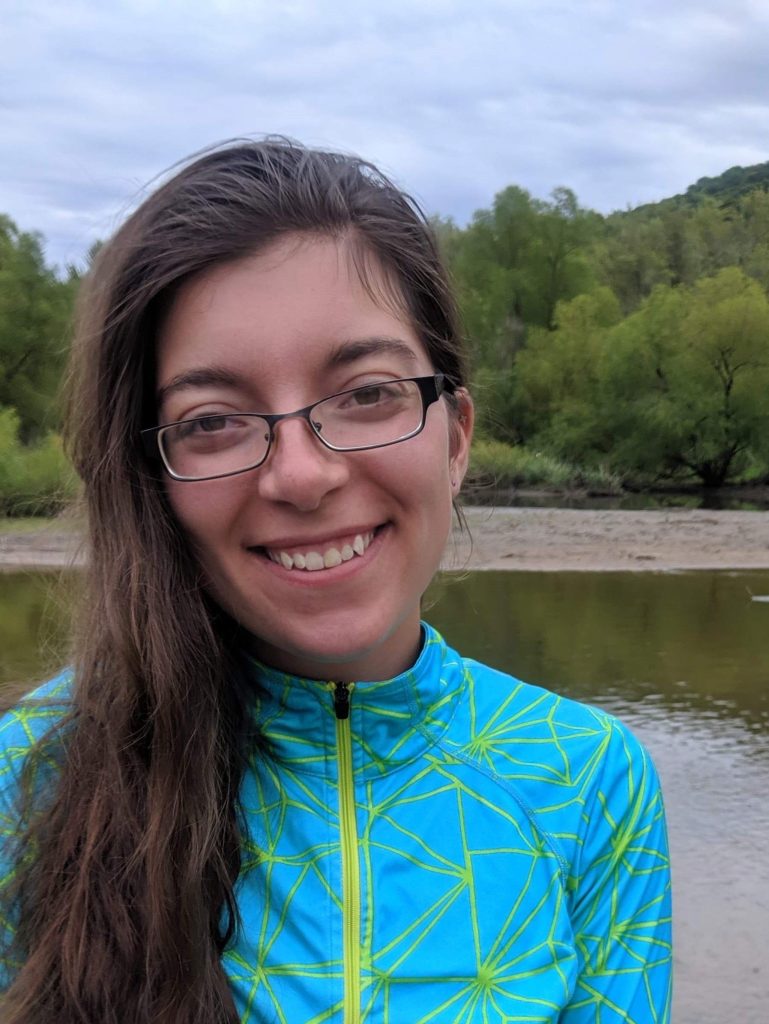
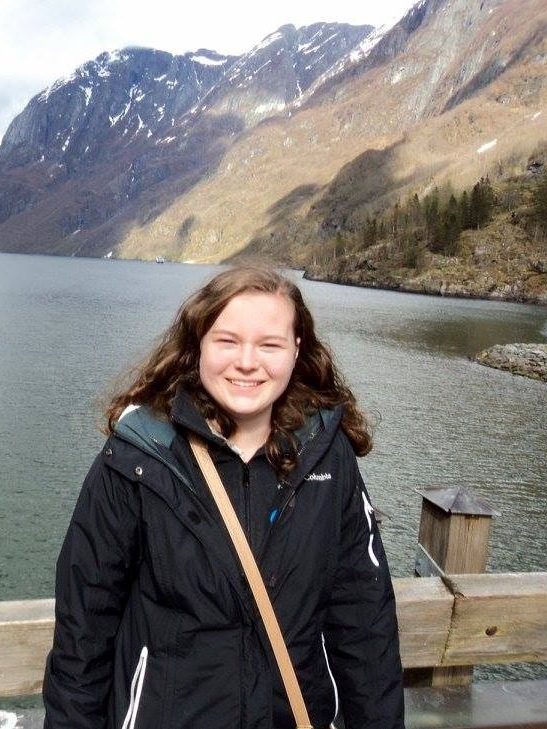
Maggie Stewart completed her Master’s Degree with the Nelson Institute and worked for the Wisconsin Department of Fish and Wildlife as the assistant Big Game Biologist. She lost her heart-breaking battle with brain cancer in 2019.

Lucas Olson completed his Master’s degree in 2019 on understanding the patterns mortality sites for white-tailed deer, and the long-term patterns of moose distribution in 2019. His first chapter was published in The American Midland Naturalist. Lucas is currently a biologist with the Rocky Mountain Elk Foundation.
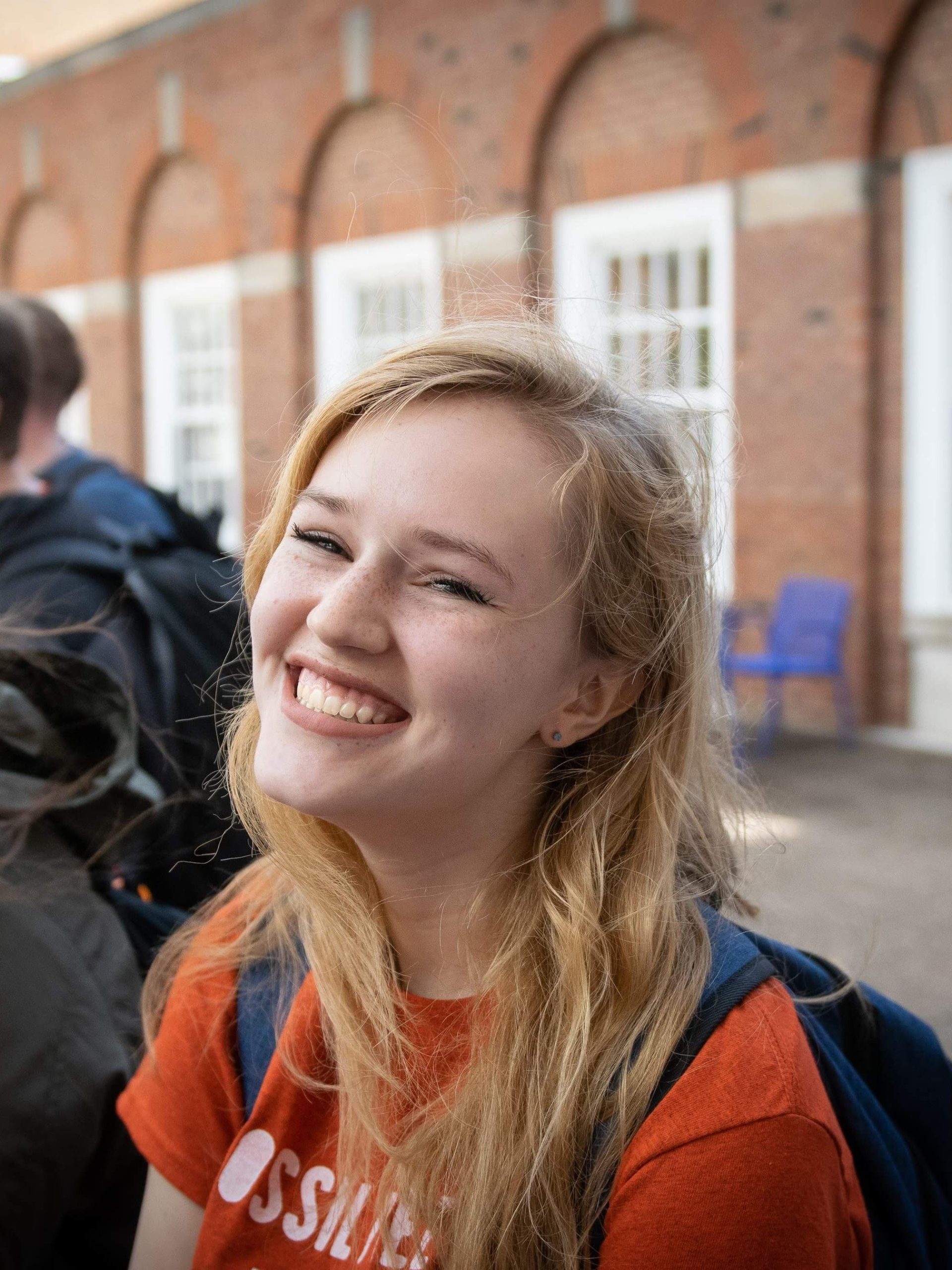
Laura Whipple completed her undergraduate degree as a UI James Scholar in 2020. She led research as part of Snapshot USA on wild carnivore abundance and its relationship with urban land use in the Urbana-Champaign area for her honor’s thesis. Laura finished her Master’s student with Diana Lafferty at the University of Northern Michigan in 2023.
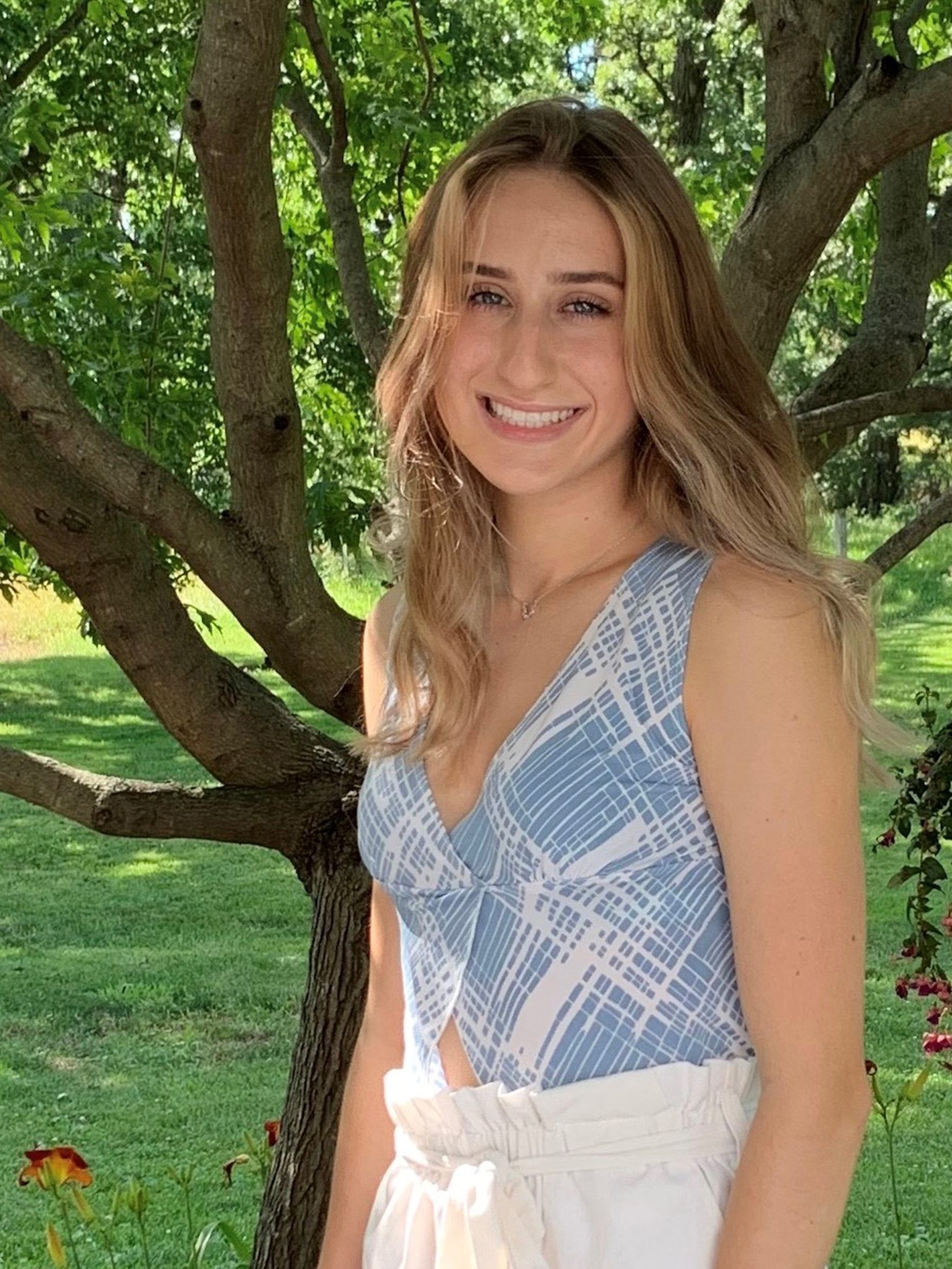
Amber Zilinger is an undergraduate student and a UI James Scholar. She plans on going to graduate school after completing my bachelor’s degree. Amber is working on the nationwide collaborative study of melanism in squirrels to discover whether urbanization causes parallel evolution of coat color in Sciurus species.
